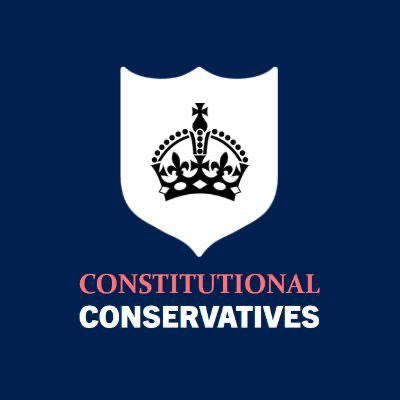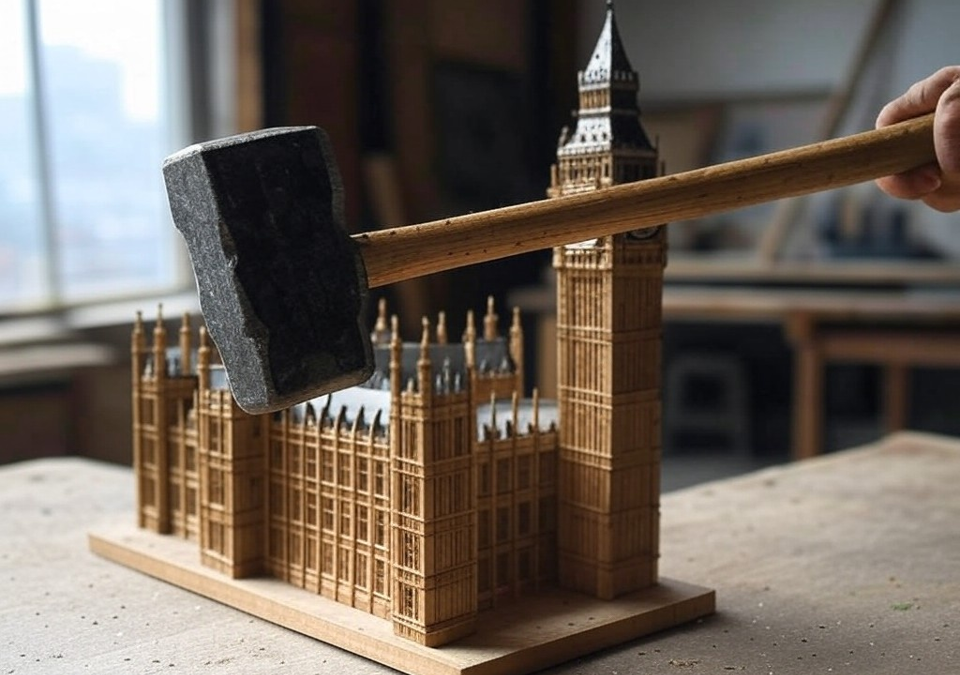By Jake Watts
Britain is special. Our multi-layered, historied Constitution has formed incrementally over centuries.
Our Parliament – the mother of parliaments – can trace its roots to the Anglo-Saxon witan. The Chancellor of the Exchequer is an office that came to exist in the twelfth century.
Is this anachronistic? Possibly. Should we hanker for anything different? Absolutely not.
This is an inheritance, an inheritance from our forebears. Because our political system has developed gradually, it incorporates experience. It’s based upon the wisdom of not just one generation of political leaders, but the collective wisdom of political figures over a millennium.
Age means strength. Age means wisdom. And age means tried and tested. Where historical episodes have highlighted serious deficiencies in Britain’s political system, the politicians of the day have acted out of necessity.
But necessity is the crucial test. When it comes to the Constitution, the old conservative adage applies: “If it ain’t broke, don’t fix it”. Where serious shortcomings in effectiveness exist, they should be addressed with vigilance.
It takes, however, a special kind of hubris to believe that the wisdom possessed by the political leaders of the day outweighs the collective wisdom of our ancestors. For this reason, radical, unnecessary alteration is unjustified. Yet Labour’s plans reflect that very approach.
The Labour Manifesto and the King’s Speech contain multiple proposals to alter our political process fundamentally. But these proposals are rooted in abstract ideas. They reflect a belief that whilst parts of our political system may not be broken in practice, they should be reformed regardless because they just seem wrong.
For instance, take plans to remove the remaining 92 hereditary peers from the House of Lords. The argument for this hinges on abstract logic: in May, Baroness Smith – the now Leader of the House of Lords – said it was “hard to justify taking a place in the legislature on the basis of who your parents, grandparents etc were”.
On the surface, this may seem reasonable: people having seats in the upper house of Parliament by virtue of lineage has been much-derided as anachronistic and bizarre. However, this isn’t the complete picture.
Hereditary peers are, ironically, the only elected part of the Lords. Unlike life appointees selected by the Prime Minister, their hereditary counterparts stand for election and are selected by their fellow peers. This means that they not only have to demonstrate their quality, but they also establish a commitment to turning up.
They are, therefore, often the most hard-working, dutiful, serious members of the upper chamber. They bring expertise in areas where such is lacking in Parliament, like agriculture and the Armed Forces.
Our Constitution should be judged not by its design, appearance, or intricacies, but by its output. Of all the practical shortcomings of our politics over the past few decades, or even of the House of Lords itself, not one of them can credibly be tied to hereditary peers.
Because our political system has developed gradually, it incorporates experience. It’s based upon the wisdom of not just one generation of political leaders, but the collective wisdom of political figures over a millennium.
But there’s also another, more romantic argument for leaving the House of Lords alone: it’s a special part of our entrancing, proudly ancient political mould. We should pride ourselves on the fact that, as a nation, we have such a rich inheritance.
The democratic world is dominated by politicians, and politicians are unpopular and loathed. We should reject the kind of drab, insipid managerialism that wants to make Britain less rooted in its own history, more uniform, and more like the rest of the world.
But Labour’s folly does not end there. The King’s Speech also outlined plans to extend devolution, granting new powers to metro mayors and combined authorities. Whilst details about this remain unclear, it sets off alarm bells instantly.
Devolution is not working. Participation rates for English mayoral elections are derisory: the recent East Midlands mayoral election had a turnout of just 27.5 per cent.
Devolution has empowered politicians looking to make a name for themselves, rather than voters. Most people do not know what their metro mayor is supposed to do, what they have done right, and what they have done wrong. It blurs accountability.
In truth, devolution was always quite antithetical to the British Constitution. Over 20 years ago, it was Tony Blair who failed to appreciate the gradual, piecemeal development of our system over centuries. He failed to appreciate that our Constitution was rooted in history and that this was a virtue, not a weakness.
It was Tony Blair who failed to appreciate the gradual, piecemeal development of our system over centuries. He failed to appreciate that our Constitution was rooted in history and that this was a virtue, not a weakness.
Conspicuously absent from the King’s Speech was Labour’s plan to extend the voting franchise to 16 and 17-year-olds. However, it was in the Manifesto and don’t expect to wait very long before you hear them talking about it again.
The age at which someone legally becomes an adult is 18. Ironically, Labour governments have, in the past, solidified this. The last Labour Government raised the age at which people could legally purchase cigarettes, fireworks, and sunbed sessions to 18.
There is little strong logic in lowering the voting age. It’s simply a way for Labour to try to gerrymander elections in their favour. It’s a cynical move, dressed up as altruistic. But, chiefly, it’s unnecessary.
If the Government seriously wanted to address an actual shortcoming of our political process, they might want to look at why turnout at the general election was just 60 per cent amongst existing members of the voting franchise. They won’t, but they should.
In reality, so much of Labour’s handling of this matter is paradigmatic of the socialist attitude that the Government knows best. Our Constitution may have been the product of countless individuals over centuries, but some erroneously believe that one government at one moment in time knows better.
The Constitution is precious. In Britain, our historic Constitution has functioned well. It has been the guarantor of political stability for three centuries. It has quirks, anachronisms, and peculiarities but they all exist for a reason and – crucially – keep us in touch with our unique history.
In a world where everyone seems intent on reinventing the wheel, perhaps we should remember: some things get better with age. After all, the proof is in the pudding or, in this case, the Parliament.

